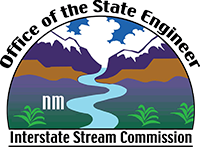Statewide Projects
- OSE Home
- About WRAP
- Statewide Projects
- Well Driller
- Resources & Links
Well Drillers Resources & Links
The New Mexico Ground Water Association: The New Mexico Ground Water Association represents many well drilling contractors, pump installation contractors, manufacturers, suppliers and consultants involved in the ground water industry in New Mexico.
The National Ground Water Association The National Ground Water Association is the hallmark organization for many affiliated with the ground water industry. A nonprofit organization, NGWA is comprised of more than 14,000 U.S. and international ground water professionals—contractors, scientists and engineers, equipment manufacturers, and suppliers. Their stated purpose is to provide guidance to members, government representatives, and the public for sound scientific, economic, and beneficial development, protection, and management of the world's ground water resources.
PSI : PSI has four testing centers statewide that provide computer based test administration for the National Ground Water Association’s General Drilling and Methodology exams that are required to become a licensed driller in New Mexico. Those same exams may also be taken online.
NM Environmental Public Health Tracking Program - The Centers for Disease Control and Prevention (CDC) National Center for Environmental Health (NCEH) is building an integrated environmental and public health information system through the National Environmental Public Health Tracking (EPHT) Program. New Mexico is one of seventeen CDC Grantees funded to implement an EPHT Network that links environmental and health data at the state, city, and national levels.
New Mexico Environment Department: The New Mexico Environment Department is responsible for overseeing water infrastructure systems and water quality issues throughout the state.
New Mexico Environment Department - Ground Water Quality Bureau: NMED Groundwater Water Quality Bureau protects the environmental quality of New Mexico's ground water resources as mandated by the Water Quality Act and the Water Quality Control Commission (WQCC) regulations (20.6 NMAC), and to identify, investigate and clean-up contaminated sites which pose significant risks to human health and the environment.
